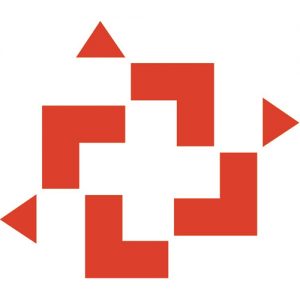- Get directions
- Leave a review
- Claim listing
- Bookmark
- Share
- Report
- prev
- next
- Tuesday, April 23, 2024 @ 10:00 am
Record revenues of CHF 7.3 billion (USD 8.1 billion) – Capital investments increase by more than 50% to CHF 2 billion – CHF 1.4 billion by public companies, CHF 0.6 billion by private companies – Significant licensing and M&A activity in 2023 – VectivBio, T3, Vertex, Santhera – R&D investments of publicly traded biotech companies have decreased in line with global markets, whereas privately financed companies were able to increase both R&D investments and liquidity reserves – Record number of product approvals by Swissmedic, EMA and FDA – including world’s first CRISPR gene editing therapy – Swiss Biotech Day increases international presence with full launch of Global Village, the partnering platform for international delegations
During 2023, Switzerland’s biotech sector again demonstrated considerable agility particularly in commercialization and financing activities to continue to play a key role in driving global healthcare innovation. In addition to record revenues of CHF 7.3 billion, the industry raised more than CHF 2 billion – a remarkable 50% increase over 2022. This comprised around CHF 1.4 billion collected by public companies, and the remaining CHF 0.6 billion by private companies. Although R&D investments dipped slightly to CHF 2.4 billion, they are still at very high levels. The latest edition of the Swiss Biotech Report launched today by the Swiss Biotech Association, in conjunction with EY and eight other partner organizations, provides an analysis of the 2023 biotech funding as well as other 2023 key ratios and statistics. The 2024 Swiss Biotech Report’s theme of ‘Reliable Partners Beyond Borders’ focuses on the positive impact of Swiss collaborations at all levels of the global life sciences ecosystem – from research & development to manufacturing and regulatory harmonization.
Michael Altorfer, CEO, Swiss Biotech Association, commented: «The World Intellectual Property Organization, WIPO, has placed Switzerland top of the Global Innovation Index for the past 13 consecutive years. The Swiss Biotech Report shows that Swiss biotech companies continue to harness this innovation power to develop effective new products and solutions that address global needs. Around 1.5 billion Swiss francs were dedicated to collaborations all over the world.»
Frederik Schmachtenberg, EY Partner and Global Life Sciences Lead for Financial Accounting Advisory Services, added «Swiss biotech companies attracted more than 2 billion Swiss francs, a more than 50% increase compared to 2022. While public biotech companies seemed to have been at least partially impacted by a dire global market sentiment, privately financed companies have raised a solid CHF 0.6 billion, which even allowed them to increase their overall liquidity reserves, despite record investments in R&D projects.»
Key Findings in the 2024 Swiss Biotech Report
Once again, the Swiss biotech industry generated record revenues of CHF 7.3 billion compared to CHF 6.8 billion in 2022. This was driven by significant collaboration and licensing deals, where Swiss biotech companies often successfully partner with large pharma companies, and product sales boosted by a record number of approvals from Swissmedic, EMA, FDA and other global regulatory authorities, including breakthrough advanced therapies from CRISPR Therapeutics, Santhera Pharmaceuticals, Idorsia, Relief Therapeutics and Basilea.
In a challenging global public market, the main fundraises were achieved by Oculis SA, with a SPAC transaction on NASDAQ and follow-on financing collecting USD 144 million and MoonLake Immunotherapeutics, with CHF 415 million through a follow-on transaction from 2022’s IPO. While the public market sentiment remained dire ever since the end of the Covid pandemic, the private funding environment held up well in 2023. Noema Pharma with CHF 103 million raised, Alentis Therapeutics with CHF 94 million, Rejuveron with CHF 67 million, Nouscom with CHF 65 million, and NewBiologix with CHF 45 million led the way.
2023 also saw significant M&A activity at all levels from early stage to established companies demonstrating the maturity of the Swiss biotech sector. Particularly worth noting are Pierre Fabre Laboratories purchase of Vertical Bio, Ironwood Pharma’s takeover of VectivBio for USD 1 billion and Boehringer Ingelheim’s acquisition of T3 Pharma for an amount of up to CHF 450 million.
The number of FTEs working in Swiss R&D biotech companies remained with over 19,000 people almost unchanged in 2023 compared to 2022. Despite an overall slight decrease in R&D expenses, the private companies’ share continued to grow.
Finally, following the creation of an innovation office in 2022, Swissmedic again looked to foster international collaboration and harmonization by establishing ‘The Access Consortium’ with like-minded medium-sized regulatory authorities, including Australia's Therapeutic Goods Administration (TGA), Health Canada (HC), Singapore's Health Sciences Authority (HSA), and the UK’s Medicines and Healthcare Products Regulatory Agency (MHRA).
Expanding the Global Village and Swiss Biotech Success Stories Awards for outstanding achievements
The Swiss Biotech Report 2024 was launched at the Swiss Biotech Day which is attracting increasing numbers of international delegates. One contributing factor is the Global Village, a platform hosted by the Swiss Biotech Association in partnership Switzerland Global Enterprise to stimulate sustainable worldwide networking and international collaboration in biotech and life sciences. In only its second year, the Global Village has already grown by 70% and featured 17 international delegations.
To recognize outstanding achievements, the Swiss Biotech Association was also presenting the Swiss Biotech Success Stories Awards at this year’s Swiss Biotech Day to the winners Fondation Suisse de Recherche sur les Maladies Musculaires (FSRMM) and Dr. Hans-Peter Strebel.
FSRMM was founded in 1985 by Jacques and Monique Rognon together with two existing patient organizations to promote research on neuromuscular diseases. Since its inception, FSRMM has raised in excess of CHF 30 million and funded more than 200 research projects at Swiss universities and hospitals.
Dr. Hans-Peter Strebel founded Fumapharm AG with three other scientists in 1983. This was the start of more than 40 years of successful research leading to the development of Tecfidera, a disease modifying therapy for relapsing multiple sclerosis which has so far benefitted more than 600,000 patients worldwide.
